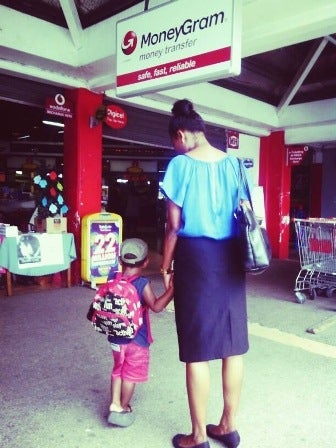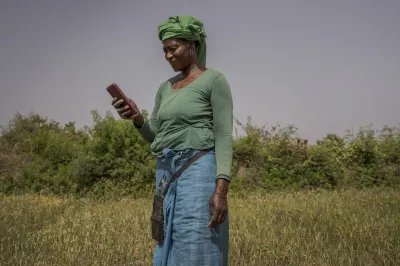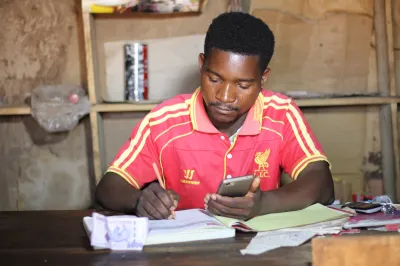What Next for Remittances and Money Transfers in the Pacific?
The Pacific region has traditionally faced some of the highest remittance charges in the world. The region also includes countries with some of the highest proportion of remittances as a share of GDP. Fiji, Samoa and Tonga in particular receive a high volume of remittances from their diaspora communities that are principally based in Australia, New Zealand and the USA. The World Bank reported that in 2013 remittances constituted 5%, 12.6% and 23.5% of GDP respectively for Fiji, Tonga and Samoa. Remittances received across the Pacific region help to support the livelihoods of migrants’ families. They provide critical financial support for many families with regards to healthcare and school fees, in particular in rural areas.
Several regulatory changes in key countries have helped make the remittance market more competitive in the past five years, and money transfer operators (MTOs) are one type of company that have expanded and created new options for customers. MTOs operating in the region include global MTOs such as MoneyGram and Western Union, as well as several smaller MTOs that are very popular in specific countries - for example the Tonga-focused MTO, Melie Mei Langi. But many of these companies operating in key send-countries like Australia and New Zealand are suddenly facing the threat of having their bank accounts closed. Banks are concerned about the perceived money laundering and terrorism financing risk (ML/TF risk) posed by MTOs and they are under regulatory pressure to manage these higher ML/TF risk customers with extra controls or to debank them altogether. Many MTOs are being debanked as a result, regardless of whether or not they have contravened any regulatory controls. The decision is often arbitrary, for example, one of the largest banks in the region is closing all of their MTO bank accounts in New Zealand.

Remittances in Fiji. Photo Credit: Audrey Bolabiu
These MTOs may not always rely on banks for the physical foreign exchange of funds involved in the process, but most MTOs rely on holding at least a business bank account. Without a bank account it is very difficult for the MTO to maintain the necessary liquidity to operate a remittance service.
MTO- driven competition in many remittance corridors has helped to reduce the cost of sending remittances to Pacific countries. The looming threat to many MTOs could unwind this progress, quickly impacting millions of people across the Pacific. The majority of people sending remittances in the Pacific region now use MTOs1, so restricting the availability of these services has a big impact on customers. With fewer MTOs, people sending remittances are forced to use more expensive remittance services or informal channels (e.g. Hawala-type remittance where funds are transferred person-to-person without any regulatory knowledge) to send money home.
The difference in remittance cost for more expensive services can be substantial. The latest data recorded by the Australia and New Zealand government funded remittance cost comparison website www.sendmoneypacific.org highlights the huge gap in remittance costs between MTOs and banks. For example, in May 2014 the lowest recorded MTO cost to send AUD 200 from Australia to Tonga was recorded at AUD 1.69 (0.84%) while the most expensive operator, a bank, was recorded at AUD 53.31, or almost 27%. Furthermore, people could also be forced to use informal channels as migrants decide to pursue these means rather than pay expensive bank remittance costs. This poses the risk of creating far greater ML/TF risks than currently exists with the current regulated MTO dominated remittance industry as remittances move to unregulated channels.
With limited banking options available to MTO agents in the Pacific, account closures risk reducing the reach of the remittance payout network, particularly in rural areas of the Pacific. MTO payout agents in remote regions can act as a de facto banking resource for local populations. In countries like Tonga, for example, where 84% of remittance payout points are in rural areas, any significant reduction in the payout network could result in a severe economic and social shock to the country.
Developing Markets Associates, an international development consultancy focused on mobilizing capital to emerging economies, and manager of SendMoneyPacific.org, conducted a survey of Australian-based MTOs (Asia and Pacific focused) in September 2013 in an effort to understand how widespread the threat of account closure had become. The survey was completed by 26 MTOs. Nearly 75% of respondents experienced threats or actual bank account closure. Two MTOs had experienced account closure at this time. Eight of the twelve MTOs that are listed on SendMoneyPacific.org for remittance services from Australia to the Pacific have experienced bank account closures.
In May 2014, Developing Markets Associates followed up with the original surveyed MTOs and also contacted all other MTOs listed on the SendMoneyPacific.org website. Five MTOs had either directly experienced account closure by this point or some of their agents were facing account closures. One of the online MTO services that had helped to substantially lower average remittance costs in the Pacific was forced to suspend services in March 2014 as a result of the perceived anti-money laundering risk placed on MTOs by the region’s dominant banks. This action has been taken despite the fact that online MTO services operating in the Pacific maintain more rigorous Know-Your-Customer procedures than some of their cash based MTO competitors. Furthermore, online MTOs are capable of providing detailed transaction reports and if required customer profiles to the relevant regulatory authorities.
Many MTOs operating in the Pacific are relatively small and corridor-specific. In the wake of bank account closure, these companies are left with few options. Other than shutting down operations all together, the only realistic choice for these MTOs is to try to operate without a bank account. Doing so raises many questions around consumer protection, as MTOs providing services without bank accounts would not be regulated, and opens the door for money laundering or other criminal practices.
Regional governments, central banks and regulatory authorities have proved effective over the past five years in addressing the problem of high remittance costs in the region. There is now an acute risk of these achievements being swiftly undone if the region’s banks take the view that the MTO industry presents a substantial money laundering and terrorist financing risk.
Such action could cut off millions of families from a vital financial lifeline – it would deprive them of a formal option to transfer remittances and push these transfers back into unregulated informal channels. From a financial inclusion perspective, this would be a step in the wrong direction.
---- Jonathan Capal is a specialist in international remittances. In 2009, he launched Developing Markets Associates' Asia-Pacific operations in Sydney, Australia where he manages the Australian and New Zealand government supported remittance comparison website, www.sendmoneypacific.org and the recently launched, Australian government www.sendmoneyasia.org website.
Footnote
1) A SendMoneyPacific.org survey in January 2014 asked: “Which bank(s) or money transfer operator(s) do you use to send money to the Pacific?” 69% of respondents replied that they used MTOs.
Sub-topics: Payments, Consumer Protection
Regions:




Comments
Thank you Jonathan. Pacific
Thank you Jonathan. Pacific regional efforts to improve financial inclusion are being placed in jeopardy as a result of regulatory pressures to deal with perceived ML/TF risks. It is unfortunate that actions taken by banks to address concerns for ML/TF risk posed by MTOs may lead to remittances and money transfers having greater exposure to ML/TF risk. Australia is currently conducting a review of its AML/CFT regime, these issues should be considered as part of this regime review (http://www.ag.gov.au/Consultations/Pages/StatReviewAntiMoneyLaunderingC…).
Add new comment